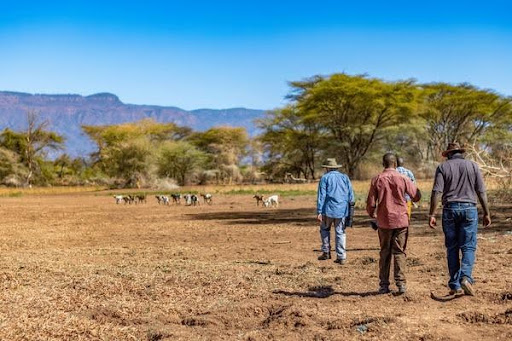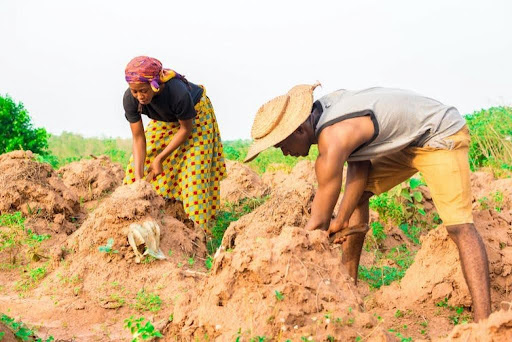Land tenure refers to the way land is owned, used, and managed. It involves the rights individuals and groups have to land and how these rights are acquired and transferred.

The Land Tenure System in Nigeria outlines how land ownership is granted to individuals, businesses, and organizations based on how they plan to use the land. This system ensures that living environments are safe and sustainable. Essentially, the land tenure system is a set of laws that manage how land is used, managed, and transferred in Nigeria.
🚨 December Exclusive Deals Are Here! 🚨
Hurry, limited slots available! Packages are selling out fast!
Book your staycation today and save BIG on our top packages.
Bronze Package (3 days) Limited Slots
4 Bedroom Shortlet🏠 Location: Lekki, Victoria Island, Ikoyi

Enjoy a weekend getaway with Silent Disco, BBQ Night, and Free Breakfast.
Only $2,500 $3,000
Silver Package (5 days) Limited Slots
Luxury 4 Bedroom Shortlet🏠 Location: Lekki, Victoria Island, Ikoyi

Includes chef dining, Silent Disco, BBQ Night, and premium concierge services.
Only $4,250 $5,000
Gold Package (7 days) Limited Slots
Exclusive 4 Bedroom Shortlet 🏠 Location: Lekki, Victoria Island, Ikoyi

Luxury at its finest with chef dining, Sip & Paint, Silent Disco, and VIP bookings.
Only $5,700 $6,000
Land tenure system in Nigeria is a major topic worldwide, and understanding how to navigate it is essential. Nigeria’s land tenure system is complex, influenced by history, culture, and law. This post will discuss the regulations of land ownership in Nigeria, exploring the various types of land tenure systems, their implications, and how they impact land ownership and investment.
Types of Land Tenure Systems in Nigeria
Nigeria developed various types of land tenure systems not just to enhance property rights and reduce wealth inequality, but to improve the classification, distribution, and administration of its land resources. These systems include:
Krent is a real estate platform in Nigeria. Whether you're looking to buy, rent, or short let a house, apartment, land, or commercial space, check out our listings. You can also request specific properties.
(1) Communal land tenure system
In a communal land tenure system, the community holds collective ownership of the land, with community leaders or family heads managing and allocating it to individuals. This setup encourages large-scale farming and fosters a sense of belonging and security. However, individual members cannot claim ownership or use the land as security, which can sometimes lead to disputes over land use and allocation.

(2) Freehold tenure System
Under this system, individuals have permanent ownership of their land, giving them the freedom to sell, lease, or use it however they want. This system offers high security and flexibility. To own land through freehold tenure, you pay a set amount based on the land size and get it surveyed.
Once you have the necessary documents signed, you can even use the land as collateral for a loan. Despite its benefits, freehold tenure is less common in Nigeria due to the strong presence of communal and customary land systems.
(3) Leasehold tenure System
In the leasehold tenure system, you lease land from the owner for a set period, gaining temporary access but not permanent ownership. During this time, you can use the land but cannot use it as collateral for loans. Common in urban areas, leasehold tenure gives you land access without the commitment of full ownership. Just remember, you must stick to the lease terms and conditions.
(4) Tenants at Governments will
The “Tenants at Government Will” system is a way the Nigerian government leases land to farmers for large-scale farming and crop production. This land is relatively cheap to acquire but cannot be used as collateral for loans. It is a great option for farmers looking to cultivate land affordably, though it comes with the restriction of not being able to leverage the land for borrowing.
(5) Rent tenure system
In the rent tenure system, tenants pay a fixed amount to the landlord for using the land, typically for one to two years. This setup offers access to the property for a shorter term compared to leasehold agreements. While it is great for short-term use, it can be challenging for tenants to make long-term plans due to the brief rental periods.
(6) Individual or Inheritance tenure system
This tenure system involves transferring land ownership to the next of kin after the original owner passes away. Typically, the land goes to the children or closest relatives of the deceased. While this system ensures that land remains within the family, it can sometimes lead to disputes among family members over how the land is divided. In some villages, land is passed down to both born and unborn children, continuing the legacy of land ownership through generations.

(7) Gift tenure system
The gift tenure system is all about voluntarily transferring land ownership from one person to another. When a landowner gives up their land willingly, the new owner gains full, permanent title and can even use the land as collateral for a loan. However, it is important to note that this transfer can be reversed by a court if necessary. This system allows for straightforward and generous land transfers, giving the new owner all the benefits and rights of land ownership.
Advantages of the land tenure system in Nigeria.
Nigeria’s land tenure system provides a solid framework for managing land use and ownership, guided by comprehensive “Decrees” and “Acts” that cover everything from land descriptions and ownership to inheritance and transactions. This system ensures that people can effectively use and manage their land and natural resources.
Inheritance tenure, a key component of this system, brings several benefits. It provides families with security and stability, allowing them to keep land across generations. By clearly defining inheritance rights, it helps reduce disputes and promotes long-term investment, as landowners are more likely to improve their property knowing it will be passed on to their heirs.
Disadvantages of the land tenure system in Nigeria
Nigeria’s land tenure system is important for managing land but comes with some challenges. Common issues include conflicts over land ownership and boundaries due to overlapping claims and poor documentation. Corruption in land administration can lead to fraudulent deals and exploitation, while the process for getting land documents and approvals can be slow and frustrating. Many landowners also lack a full understanding of their rights and the legal steps involved in land transactions.
Inheritance tenure, while providing family security, can lead to land fragmentation and disputes among heirs. This can cause legal delays and limit investment opportunities. Additionally, traditional and cultural differences can add complexity to land use. Despite these issues, the land tenure system is essential for regulating land rights and responsibilities in Nigeria.
Key features of the land tenure system in Nigeria
The land tenure system in Nigeria has several key features. These elements together influence how land is owned, used, and managed in Nigeria.
They include:
- Individual Property Rights : Each person has specific rights to their land.
- Community Land Use : Land is often used according to community rules and needs.
- Control of Common Land : There is management of communal land shared by the community.
- Legal Transfer: Land can be transferred from one person to another following legal procedures.
FAQs
(1) What are the five land tenure systems?
There are seven types of land tenure systems in Nigeria including Communal Land Tenure System, Freehold Tenure System, Leasehold Tenure System, Tenants at Governments will, Gift tenure system, Rent tenure system, Inheritance tenure system
(2) What are the problems of land tenure systems in Nigeria?
Problems of the land tenure system in Nigeria include land disputes, corruption, bureaucratic inefficiencies, lack of awareness of rights by land owners and many more.
(3) What is the principle of the land tenure system?
The principle of the land tenure system determines how property rights are assigned in different communities. They outline who can use, control, and transfer land, along with the responsibilities and restrictions that come with it.
(4) What are the factors affecting the land tenure system in Nigeria?
The land tenure system in Nigeria is affected by cultural factors, socioeconomic factors, historical influences, government laws and policies.
Conclusion
The land tenure system in Nigeria is complex and impacted by historical, cultural, and legal influences. While it provides a framework for land ownership and use, it also faces significant challenges like land disputes, corruption, and bureaucratic inefficiencies.
Understanding these factors is vital for navigating the system effectively. Despite these challenges, Nigeria’s land offers substantial investment potential, making it a promising option for securing your financial future. Proper due diligence, legal guidance, and awareness of land tenure principles are key to successful land acquisition and management in Nigeria.
